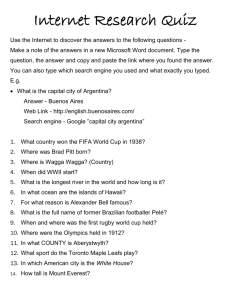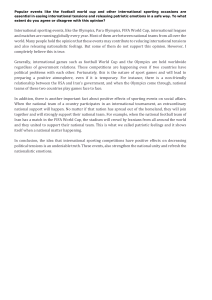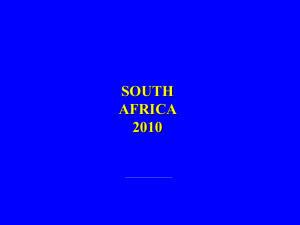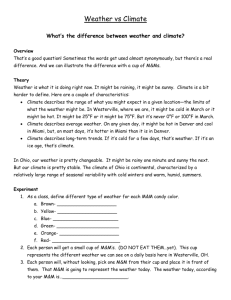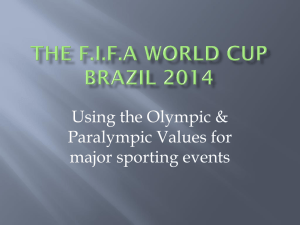2014 FIFA World Cup Predictions
advertisement
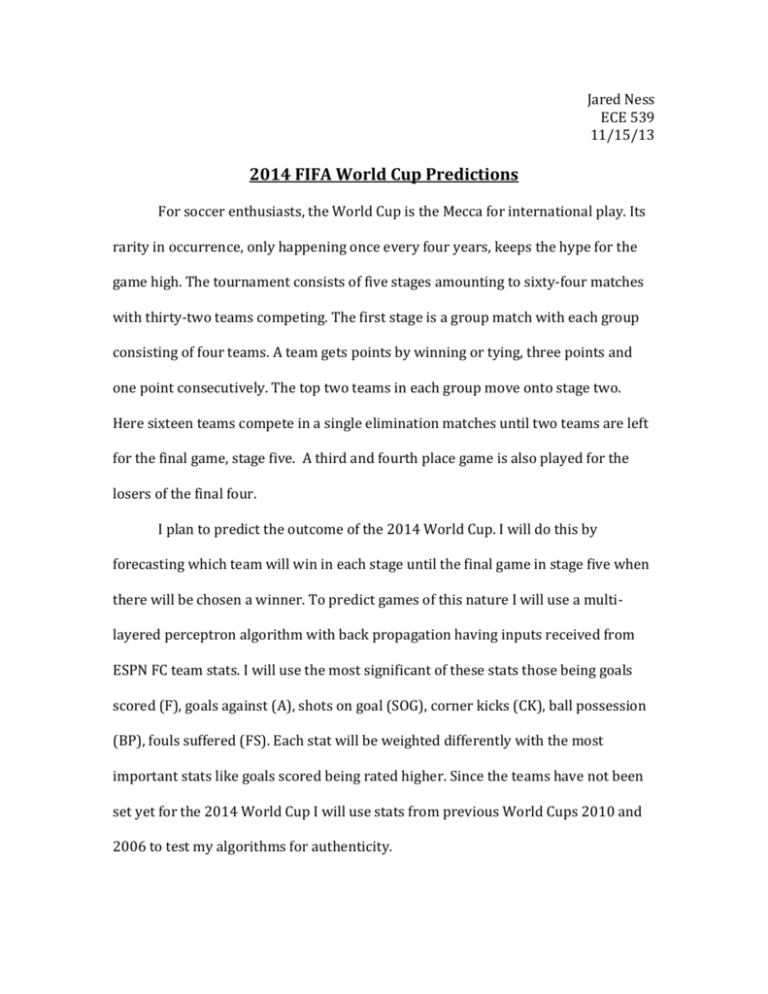
Jared Ness ECE 539 11/15/13 2014 FIFA World Cup Predictions For soccer enthusiasts, the World Cup is the Mecca for international play. Its rarity in occurrence, only happening once every four years, keeps the hype for the game high. The tournament consists of five stages amounting to sixty-four matches with thirty-two teams competing. The first stage is a group match with each group consisting of four teams. A team gets points by winning or tying, three points and one point consecutively. The top two teams in each group move onto stage two. Here sixteen teams compete in a single elimination matches until two teams are left for the final game, stage five. A third and fourth place game is also played for the losers of the final four. I plan to predict the outcome of the 2014 World Cup. I will do this by forecasting which team will win in each stage until the final game in stage five when there will be chosen a winner. To predict games of this nature I will use a multilayered perceptron algorithm with back propagation having inputs received from ESPN FC team stats. I will use the most significant of these stats those being goals scored (F), goals against (A), shots on goal (SOG), corner kicks (CK), ball possession (BP), fouls suffered (FS). Each stat will be weighted differently with the most important stats like goals scored being rated higher. Since the teams have not been set yet for the 2014 World Cup I will use stats from previous World Cups 2010 and 2006 to test my algorithms for authenticity. Data Source http://espnfc.com/league/_/id/fifa.worldq?cc=5901 Resources Huang, Kou-Yuan, and Wen-Lung Chang. "A neural network method for prediction of 2006 World Cup Football Game." Neural Networks (IJCNN), The 2010 International Joint Conference on. IEEE, 2010. Rotshtein, A. P., M. Posner, and A. B. Rakityanskaya. "Football predictions based on a fuzzy model with genetic and neural tuning." Cybernetics and Systems Analysis 41.4 (2005): 619-630.

